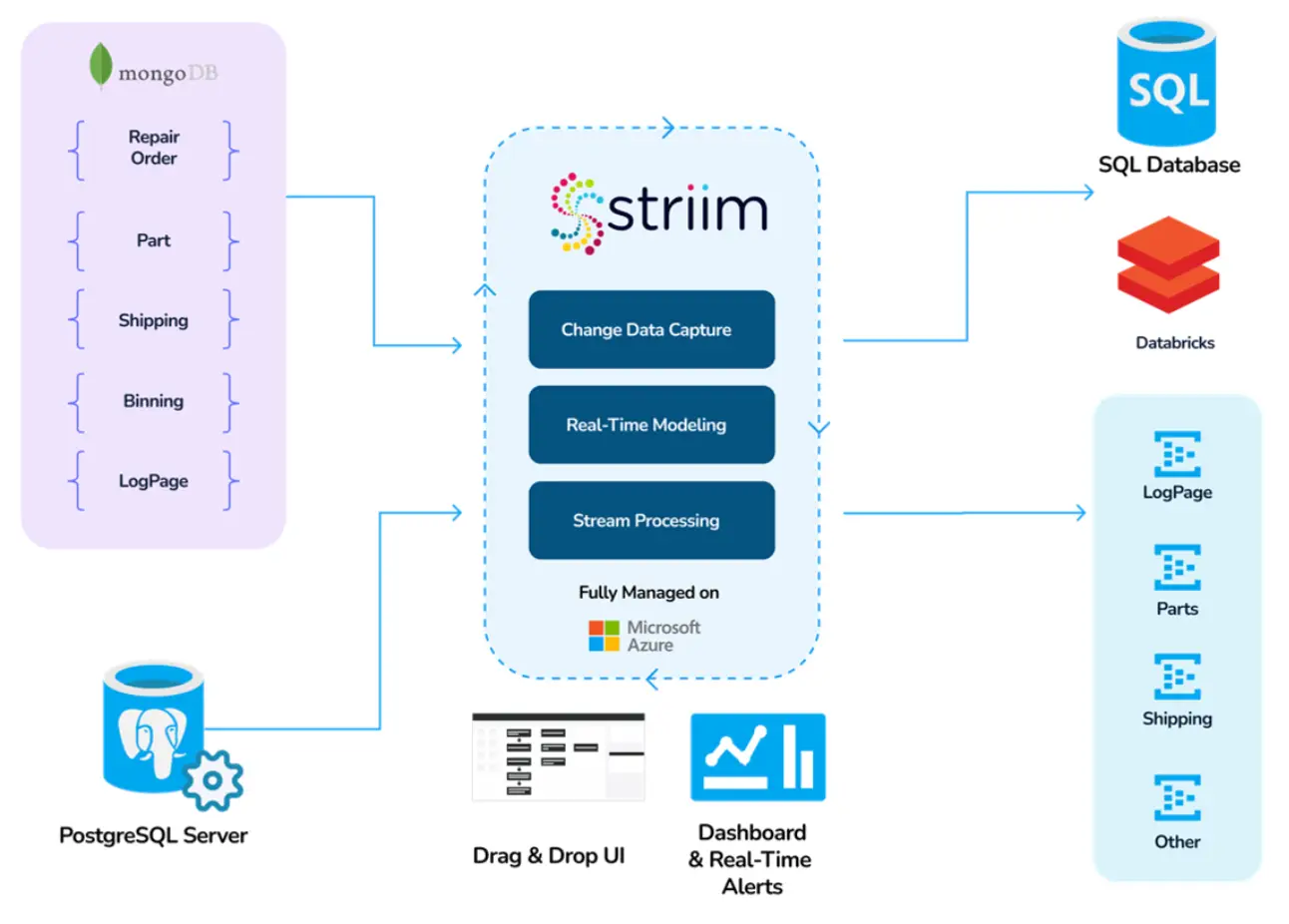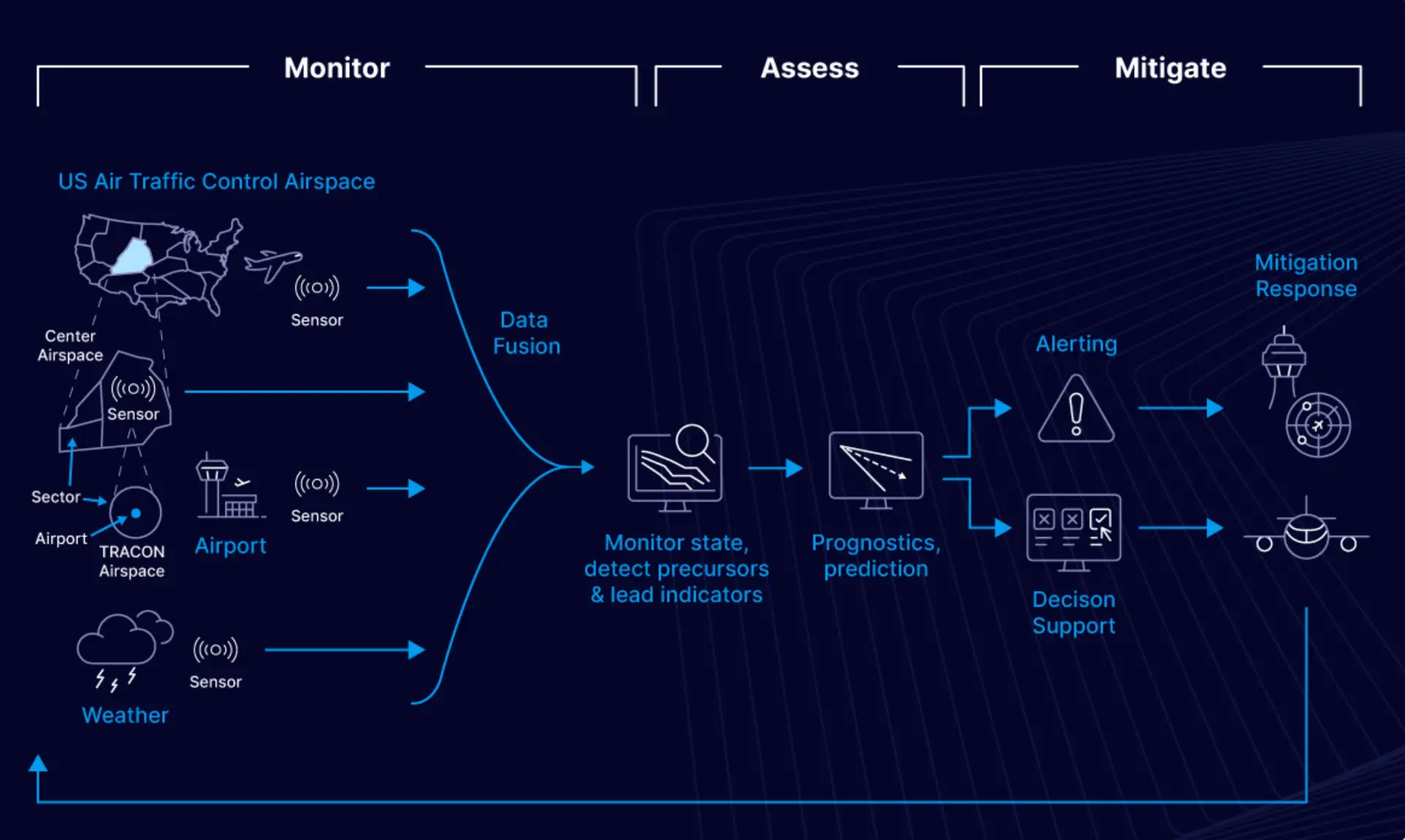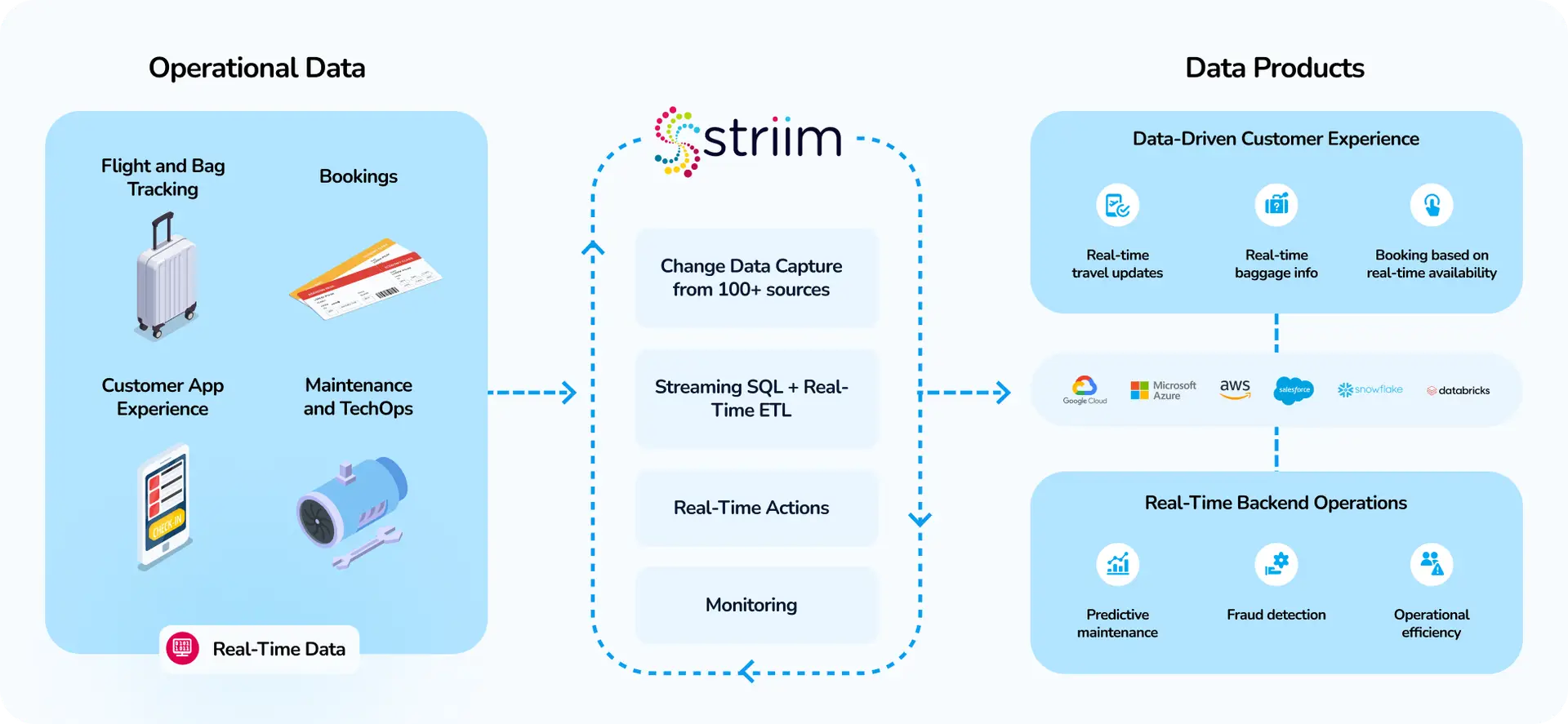The aviation industry is currently undergoing a technological transformation due to increased demands of the customer in the digital and AI age. This transformative wave is redefining operational paradigms and passenger experiences alike. The airline industry has witnessed significant advancements by implementing AI and data integration, making it a leading example for other companies to follow.
Overcoming Integration Challenges
Adopting a data-driven culture is pivotal for airlines aiming to leverage technology for operational and service excellence. This shift towards data-centric decision-making and operations is fundamental for enhancing safety, efficiency, and passenger satisfaction. Airlines face a slew of challenges including:
- Legacy Systems Slowing Down Innovation: Old systems that are no longer useful make it hard to use new and improved technology. This slows down progress and makes it difficult to work efficiently.
- Siloed Data: The problem is that data is spread out in different places, which makes it hard to see the big picture and make good decisions. This also makes it tough to improve how things are done.
- Disruptions During Technology Upgrades: There is a chance of problems and delays when introducing new technology into an airline’s current system.
Predictive Analytics: A Leap Towards Proactive Maintenance
Advances in predictive analytics have transformed maintenance strategies, moving away from reactive practices and towards proactive and predictive ones. As a result, there is a notable enhancement in operational reliability and safety.
- Anticipating Maintenance Needs: Artificial intelligence can use data from plane sensors to detect problems and prevent them. Airlines can save money and make travel better for passengers with predictive analytics. This can also help them schedule maintenance more efficiently, reducing delays and making better use of resources.
- Enhancing Safety: Mckinsey states that airlines can improve safety by planning ahead and taking care of maintenance needs before they become a problem. This makes sure that planes are always in good condition for every flight.
- Cost Efficiency: Using predictive analytics for maintenance not only improves safety but also provides significant cost savings by avoiding costly, unplanned repairs and minimizing flight delays or cancellations.
Personalizing the Skies: A New Era of Passenger Experience
Nowadays, travelers expect personalized experiences that cater to their individual preferences in the world of technology. Thanks to real-time data and AI, airlines can not only meet but also exceed these expectations, transforming the flying journey into a customized adventure such as:
- Tailored Travel Offers: Analyzing individual passenger data to offer customized travel options, from booking preferences to loyalty rewards, enhancing the value proposition for each passenger.
- In-Flight Personalization: Personalizing the in-flight experience with entertainment, meal choices, and comfort settings based on passenger preferences, guaranteeing a pleasant and memorable journey.
- Enhanced Customer Service: Using real-time insights to proactively address passenger needs and resolve issues promptly, significantly improving customer satisfaction and loyalty.
Steering Towards Sustainability
As environmental sustainability becomes a pressing global concern, the aviation industry is leveraging technology to reduce its environmental footprint and contribute to a greener planet.
- Optimized Flight Paths: AI analytics optimize flights, cutting fuel use and emissions. Airlines save money and offer lower prices, while also adopting eco-friendly practices like biofuels, reducing plastic, and recycling. This shows the industry’s dedication to sustainable operations and meets customers’ desire for environmentally-friendly travel. Technology and sustainability improve the overall customer experience.
- Improved Operational Efficiency: Achieving more efficient operations through real-time data analysis, leading to reduced waste and lower carbon emissions.
- Sustainable Practices: Implementing innovative solutions and practices that promote environmental sustainability, from reducing single-use plastics onboard to investing in sustainable aviation fuels.
Business Value of Digital Transformation in Aviation
The digital transformation journey in aviation, spearheaded by initiatives like those of American Airlines, brings forth significant business value:
- Reduced Operational Costs: By optimizing flight operations and maintenance schedules, airlines can significantly lower their operational costs.
- Increased Revenue Opportunities: Data analytics allows for customized services and focused promotions, creating opportunities for increased revenue through improved customer engagement and loyalty initiatives.
- Risk Mitigation: Real-time data analytics and predictive maintenance models help in proactively identifying and mitigating risks, thereby reducing the likelihood of costly disruptions.
- Competitive Advantage: Airlines that embrace digital transformation can differentiate themselves in a competitive market, offering superior customer experiences and operational efficiency.
How American Airlines streamlines operations with Striim

American Airlines’ proactive integration of Striim and its comprehensive digital transformation strategy serves as a beacon for the aviation industry, demonstrating the tangible benefits of embracing technological innovation.
- Operational Excellence: Showcasing how real-time data integration can streamline operations, enhance safety, and reduce costs, setting a new standard for operational excellence.
- Customer Satisfaction: Illustrating the profound impact of personalized services on passenger satisfaction, reinforcing the importance of customer-centric strategies in the digital age.
The aviation sector is applying technology to enhance the experience of air travel. American Airlines stands out as a prime example, employing Striim, real-time data analysis, and AI. This will result in more streamlined, personalized, and eco-friendly air travel.
The industry is leveraging data to make informed choices, proactively maintaining aircraft to prevent problems, offering unique passenger experiences, and prioritizing environmental impact. Other airlines can gain valuable insights from American Airlines’ effective implementation of digital transformation. These advancements will increase safety, satisfaction, and sustainability in air travel. Schedule a demonstration with Striim to propel your organization to the next level.























